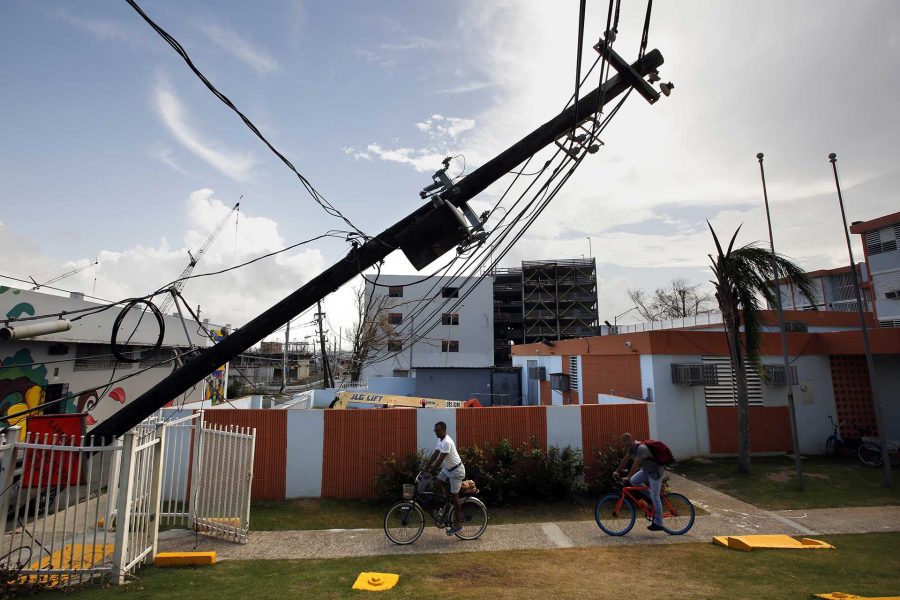Living in the landlocked Midwest, it can be difficult for many of us, if not most of us, to imagine what it must be like to go through a hurricane. It’s even harder to picture being voiceless in our democracy. What we can recall, however, is the uncertainties and difficulties that our families faced during the Recession. If you put the prior situations side by side, you begin to see an outline of what it now looks like to live in Puerto Rico.
It’s fair to say that many of us don’t have too much background on Puerto Rico. I, for one, didn’t learn about it growing up, despite its being a U.S. territory. In 1898, it was officially under U.S. control after the Spanish-American War; up to that point, it had been a Spanish colony. To this day, the island remains organized but unincorporated, keeping its colony status, just in new packaging.
As a territory, Puerto Ricans are U.S. citizens and are protected by the U.S. Constitution, but they only have the power to vote in presidential primaries and their representative in Congress can’t vote on the floor. They do, however, have the power of local self-governance through a Constitution that was approved by Congress in 1952. They have a governor, an Assembly and a Senate, and the citizens pay taxes important to the U.S. government.
If Puerto Rico shares all these similarities to regular states, the question becomes: why weren’t we rushing to allocate funds and deliver aid, as we did for Texas and Florida? Puerto Rico’s financial crisis isn’t an excuse. After acquiring Puerto Rico, many U.S. policies played a role alongside faulty leadership that put the island in such a dire state.
RELATED: Iowa Security, National Guard to assist in Puerto Rico
When PROMESA was put into effect, it left Puerto Rico in limbo because it was not treated as a state or municipality and failed to treat economic issues that were a result of the financial crisis. Many also believe that the oversight board replicates colonial control by robbing the island of autonomy and self-governance, which was given to them as a territory. We can’t pick and choose when it becomes convenient to treat Puerto Rico like a territory.
To blame the victim in a time of need is in extremely poor taste and, frankly, just doesn’t correlate. Hurricane Maria truly devastated the island and left a majority of it without power. U.S. citizens are in dire need of medical care, clean water, and food.
An island that had been devastated from financial crisis was barely able to help itself before, and it will not be able to now unless we do something. The aid that President Trump has thus far allocated came a full week after the storm hit. While there was prior federal planning, it’s difficult to understand why the government felt it had to wait so long and fulfill these plans so slowly.
There’s of course many nuances that go along with disaster-relief planning, but debris removal and coordination of emergency efforts need to be supplemented with money, food, water, and other resources at a faster pace. Our government is more than capable of providing these things and executing action
quickly.



